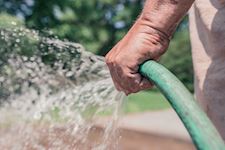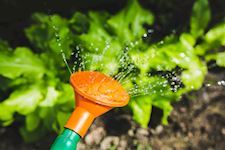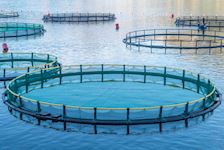Aquaculture - Endorsed Certificate Course (TQUK - Training Qualifications UK)
Distance learning course with study materials, tutor support and final exam included
Academy For Distance Learning
Summary
- Exam(s) / assessment(s) is included in price
- Tutor is available to students
Add to basket or enquire
Overview
Aquaculture Online Course.100 Hours Endorsed Certificate Course (TQUK - Training Qualifications UK).
Develop a capacity to develop and manage freshwater aquaculture enterprises. Aquaculture is the farming of water animals (eg. Fish, crustaceans) for human consumption.
This course covers: water (e.g. source, purity, flow, temperature, dissolved oxygen), stocking rates, spawning, checking stock, stripping, fertilization, hatching, growth stages, feeding, harvesting, stocking and more.
Benefits of an ADL Endorsed Course?
Endorsed courses are skills based. They have been evaluated and approved by an independent awarding body such as Training Qualifications UK (TQUK).
What makes ADL’s Endorsed courses different?
- Flexible Self-Paced Learning– adjust your learning around your home and work commitments
- Start and Finish at any time
- Courses globally and industry relevant
- Practical Component at the end of most lessons.
Allocated your own tutor relevant to your subject. You can have as little or as much contact as you like with your tutor. They are there to support you all the way through.
This course is endorsed by TQUK -Training Qualifications UK, an OFQUAL awarding body.
Achievement
Course media
Description
Lesson Structure:
1. Introduction to Aquaculture
- Scope and nature of freshwater aquaculture
- Resources, references, organisations around the world
- Equipment and material suppliers
2. Production Systems - EP and IP
- Open, semi closed and closed systems
- Extensive production
- Intensive production
- Water containment: earth, concrete, wood, brick, stone, fibre-glass, liners, etc
- Dams and water storage: siting, site
3. What Species to Farm
- Selection criteria
- Climate
- Water resources
- Finance
- Scale of operation
- Other resources: manpower, knowledge, support services, etc.
- Market demand and access
- Ecological considerations
- Risk considerations
- Review of different fish: we review many fish and other species suited to farming in Australia,the UK and other countries), including:
- Trout
- Rainbow trout
- Brown trout
- Bass
- Catfish
- Carp
- Cod
- River blackfish
- Marron
- Algae
4. Trout
- Three main trout species
- Farming trout
- Water
- Determining flow in source water
- Water temperature
- Water dissolved oxygen
- Stocking rates for production pools
- Spawning trout
- Checking the fish
- Stripping technique
- Fertilisation of ova
- Hatching ova
- From hatch to free swimming stage
- Feed
- After free swim stage
5. Barramundi
- Industry perspective
- Breeding and growth rates
- Induced breeding; hormone injection
- Growth
- Fry management and after care
- Grow out
- Pond rearing for larvae
- Barramundi diseases and parasites
6. Bass
- Varieties: Australian bass, American loudmouth, Smallmouth
- Habitat requirements: temperature, dissolved oxygen, pH
- Natural spawning cycle
- Controlled spawning
- Harvesting
7. Freshwater Crayfish
- Scope and nature of crustacean aquaculture
- Marron and Yabbie
- Conditions: water, temperature, pH, salinity, dissolved oxygen, organic loading, water clarity, pod size
- Initial breeding stocks
- Production potential
- Stocking rates
- Breeding
- Growth
- Feeding
- Composts for Marron feeding
- Red Claw
- Yabbie
8. Setting Up a Fish Farm
- Land and water
- Water requirements
- Extensive production dams
- Intensive production pools and raceways
- Cages
- Biological filtration systems
- Filter efficiency
- Clearing turbid water in dams
- Protecting fish
- Improving genetic quality of fish
- Economics of establishing and running an aquaculture farm
- Financial management
- Financial institutions
- Better planning
- Economics
- What to plan for
- Production
- Marketing
9. Fish Foods & Feeding
- Scope and nature
- Pelleted feed
- Live feed
- Brine shrimp
- Daphnia
- Worms
- Night lights
- Fishmeal
- Oil meals
- Fish food production
- Beef heart
- Legumes
- Seafood and vegetable mix
- Earthworm and compost production
10. Harvesting
- Introduction
- Harvesting techniques: seine nets, gill nets, traps, long lines, funnel trap, flyke trap, etc
- Fish pumps
- Mechanical graders
- Fish health management
- Review of diseases: salmonids, barramundi, trout, carp, etc
Each lesson culminates in an assignment which is submitted to the academy, marked by the academy's tutors and returned to you with feedback, any relevant suggestions, comments, and if necessary, extra reading.
Who is this course for?
Agriculturalists, Farmers, Horticulturists
Requirements
A pc or laptop with internet connection.
Career path
Education programs in aquaculture can lead to many different career paths ranging from farming to scientific research.
Questions and answers
I am looking for setting up a freshwater fishpond in West Africa. I am yet to decide on the species of fish. I hope this course will guide me.
Answer:Hi Ogbonnaya Wow, that sounds fantastic. It's an extremely extensive course, so it should help you considerably. It covers species such as the Barramundi to Crayfish, including fish spawning cycles, and feeding. The entire logistics of setting up a Fish Farm, including resources, references, equipment and material suppliers. Also, fish health, harvesting techniques such as seine nets, gill nets, traps, long lines, funnel traps, and flyke traps, etc. Kindest regards ADL Student Support
This was helpful.Can I get funding for this course ??
Answer:Hi Shajed Many thanks for your question. There are only finance options available to you I'm afraid. Reed offer a payment plan allowing you to purchase the course via 3 or 6 separate payments. ADL do not offer "funding" for courses, although I would advise that you speak to your local Job Centre to see if you qualify for a training grant. If you require any further assistance in this matter please do not hesitate to contact me. Kindest regards Amanda White General Manager
This was helpful.Hi. I am looking to set up a freshwater shrimp farm in Thailand. Would this course help ?
Answer:Hi Paulypag Many thanks for your question. Yes, it would most certainly help you set up a freshwater farm. This course covers: water (e.g. source, purity, flow, temperature, dissolved oxygen), stocking rates, spawning, checking stock, stripping, fertilization, hatching, growth stages, feeding, harvesting, stocking and more. I wish you well in your business venture, which sounds fantastic. If you require any assistance or further information please let me know. Kindest regards Amanda White
This was helpful.
Reviews
Currently there are no reviews for this course. Be the first to leave a review.
Legal information
This course is advertised on reed.co.uk by the Course Provider, whose terms and conditions apply. Purchases are made directly from the Course Provider, and as such, content and materials are supplied by the Course Provider directly. Reed is acting as agent and not reseller in relation to this course. Reed's only responsibility is to facilitate your payment for the course. It is your responsibility to review and agree to the Course Provider's terms and conditions and satisfy yourself as to the suitability of the course you intend to purchase. Reed will not have any responsibility for the content of the course and/or associated materials.





